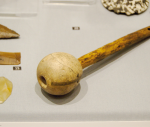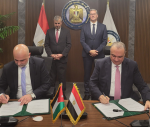You are here
Nakba, Abbas, Trump and the region
May 17,2017 - Last updated at May 17,2017
While the 69th anniversary of Israel’s conquest of 78 per cent of Palestine was marked on May 15 by sporadic clashes in the West Bank, Palestinian President Mahmoud Abbas was in India visiting a technology institute which is expected to help Palestinians set up a $12 million high-tech sector in Ramallah.
On Tuesday, Abbas met Indian Prime Minister Narendra Modi in a bid to convince him to press his Israeli counterpart, Benjamin Netanyahu, when they meet in July to resume negotiations on the basis of the moribund two-state solution involving the emergence of a Palestinian state alongside Israel.
A Hindu nationalist supportive of Israel, Modi is unlikely to take up this pointless mission.
Netanyahu has spurred Israeli colonisation of the West Bank and East Jerusalem in order to prevent the creation of a Palestinian state by planting enough Israeli colonists to make it impossible for their withdrawal.
Abbas clearly did not want to be in Palestine for this anniversary. Perhaps he did not want to be reminded of his family’s flight from his hometown of Safad, in the Galilee, during the 1948 war when he was 13 years old.
Perhaps he does not want to remember his days as a refugee in Damascus, Cairo and Doha before becoming involved with Yasser Arafat’s Fateh.
In spite of all his faults and failings, Arafat did, after all, put Palestine back on the world map during the late 1960s and 1970s.
Today, Palestine is a virtual state rather than a state with national territory and borders. Palestinians remain stateless with no hope of securing a state.
The timing of Abbas’ visit to India is significant.
He simply sought an excuse to be absent from Ramallah on this anniversary.
As the godfather of the 1993 Oslo accord, he bears considerable blame for its failure to bring forth a Palestinian state.
Arafat used to travel often in order to escape the realities of the situation in Palestine.
Abbas is faced with a challenge Arafat did not encounter: the mass hunger strike of hundreds of Palestinian prisoners incarcerated in Israeli jails.
The strike is seen by Abbas as a challenge to his tenure as it is led by Marwan Barghouthi, a figure many Palestinians would like to see freed as South African freedom fighter Nelson Mandela was released and stand for the Palestinian presidency.
Abbas, 82, is not yet ready for a successor.
Abbas has already met US counterpart Donald Trump who, during his campaign for the presidency, pledged to move the US embassy from Tel Aviv to Jerusalem, thereby recognising the city as Israel’s capital and finishing off the hope that the fate of the city, occupied in two stages by Israel, in 1948 and in 1967, could be negotiated.
Since all 86 of the foreign missions accredited to Israel are located in Tel Aviv, a shift of the US embassy would be a damaging political event, not just the relocation of a bunch of diplomats and their staff.
Now in office, Trump is said to be reassessing whether moving the embassy would harm the prospects for a Palestinian-Israeli peace deal, which he has suggested could be reached by persuading Arab governments to normalise relations with Israel without obtaining the quid pro quo demanded by the 2002 Arab summit: full Israeli withdrawal from the territories occupied in 1967.
This is a non-starter that would add insult to the injury of a decision by the Trump administration to move the embassy.
While Trump is set to be feted on the coming weekend when he meets Saudi King Salman, Gulf Cooperation Council leaders and rulers from state members of the Organisation of Islamic Cooperation, he is certain to be told that his proposed shift of US embassy would deeply anger Muslims everywhere.
He will also hear that Arabs cannot make peace with Israel until a Palestinian state is assured. However much some Arab leaders would like to ditch the Palestinian cause, this is not an option in the post-Arab Spring region where populations rose up against their leaders and ousted them.
No Arab policy maker can forget that the 1948 Palestinian Nakba triggered military coups in Syria, Egypt and Iraq, and ultimately Libya.
Be assured Trump, who hates to be briefed on past events as well as current developments, will not know this.
His decision to make Saudi Arabia the initial destination of his first presidential foreign tour was rash because he is to follow bilateral talks with the Saudis and multilateral talks with Muslim leaders with a visit to Israel where he will be unable to offer Netanyahu either an embassy move nor negotiations with Arab leaders without a halt to Israeli colonisation of East Jerusalem and the West Bank and the relaunch of talks with Abbas.
Following Trump’s visit to Israel, he is set to go to the Vatican where Pope Francis could very well bring up the awkward issue of the exodus of Palestinian Christians from their homeland and their region and the US failure to protect Christians in Syria and Iraq from the brutalities of Daesh and Al Qaeda.












